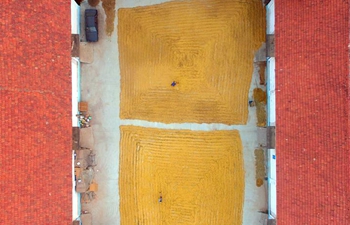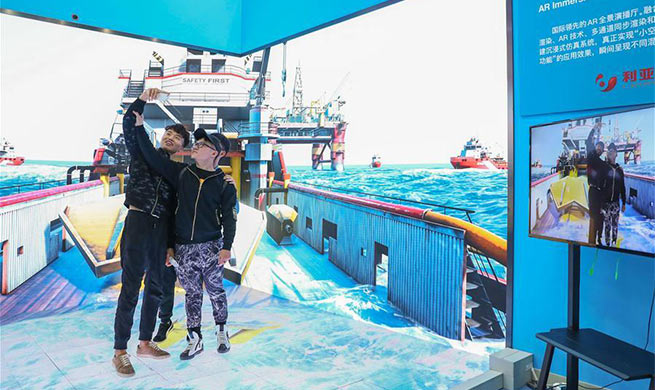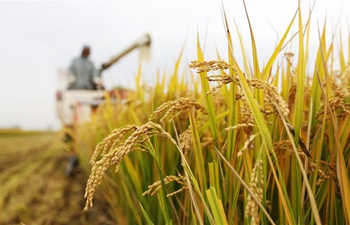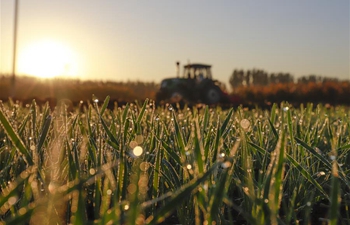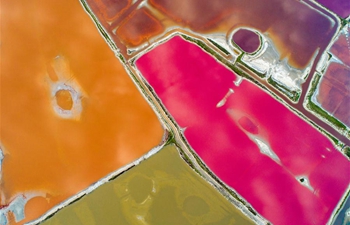CHICAGO, Oct. 9 (Xinhua) -- Human body's inability to fully utilize the essential dietary mineral manganese might be to blame for some cases of severe scoliosis, a curvature of the spine, a study suggested.
Children with severe scoliosis are twice as likely as children without the disease to carry a gene variant that makes it hard for their cells to take in and use manganese, which is required for growing bones and cartilage, the study published on Tuesday in the journal Nature Communications.
Cases of scoliosis tend to cluster in families, but not in a simple way, which suggests that many different genes each play a small role in increasing the risk of the disease.
To identify such genes, researchers at the Washington University School of Medicine in St. Louis scanned all the genes in 457 children with severe scoliosis and 987 children without scoliosis.
They found a variant in the gene SLC39A8 in only 6 percent of the healthy children but 12 percent of the children with severe scoliosis.
A second analysis in a separate group of 1,095 healthy children and 841 children with moderate to severe scoliosis found that children with scoliosis were about twice as likely to carry the variant.
When the researchers bred zebrafish with a disabled SLC39A8 gene, the fish developed movement and skeletal abnormalities, including curves in their spines.
The researchers found that human cells with the gene variant successfully took up zinc and iron but failed to take in manganese. They also discovered that children with the gene variant had significantly lower levels of manganese in their blood than those with the more common form.
The children with the genetic variant did not have manganese deficiency, but they may be unable to use manganese as efficiently as others.
"The genetic variant does not stop the gene from working entirely, it's just not working optimally," said postdoctoral researcher and first author Gabriel Haller. "So maybe most people need a certain level of manganese in their blood, but if you have a bad gene variant like this one, you need more."
Scoliosis affects 2 percent to 3 percent of the U.S. population and mainly develops in children 10-15 years old, according to the American Association of Neurological Surgeons.
Manganese is both an essential mineral and a toxin. High doses can cause manganism, a permanent neurological condition characterized by tremors and difficulty walking, as well as psychiatric symptoms such as aggression and hallucinations. The mineral also has been linked to Parkinson's disease, schizophrenia and high blood pressure.
Meanwhile, lack of manganese can result in problems metabolizing fat and sugar, impaired growth, difficulty walking and curvature of the spine.








